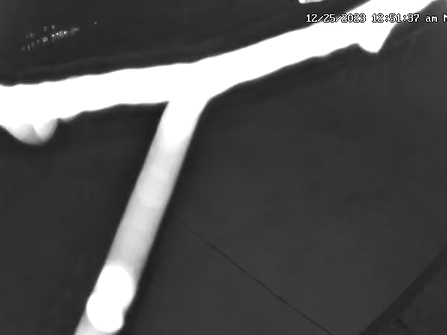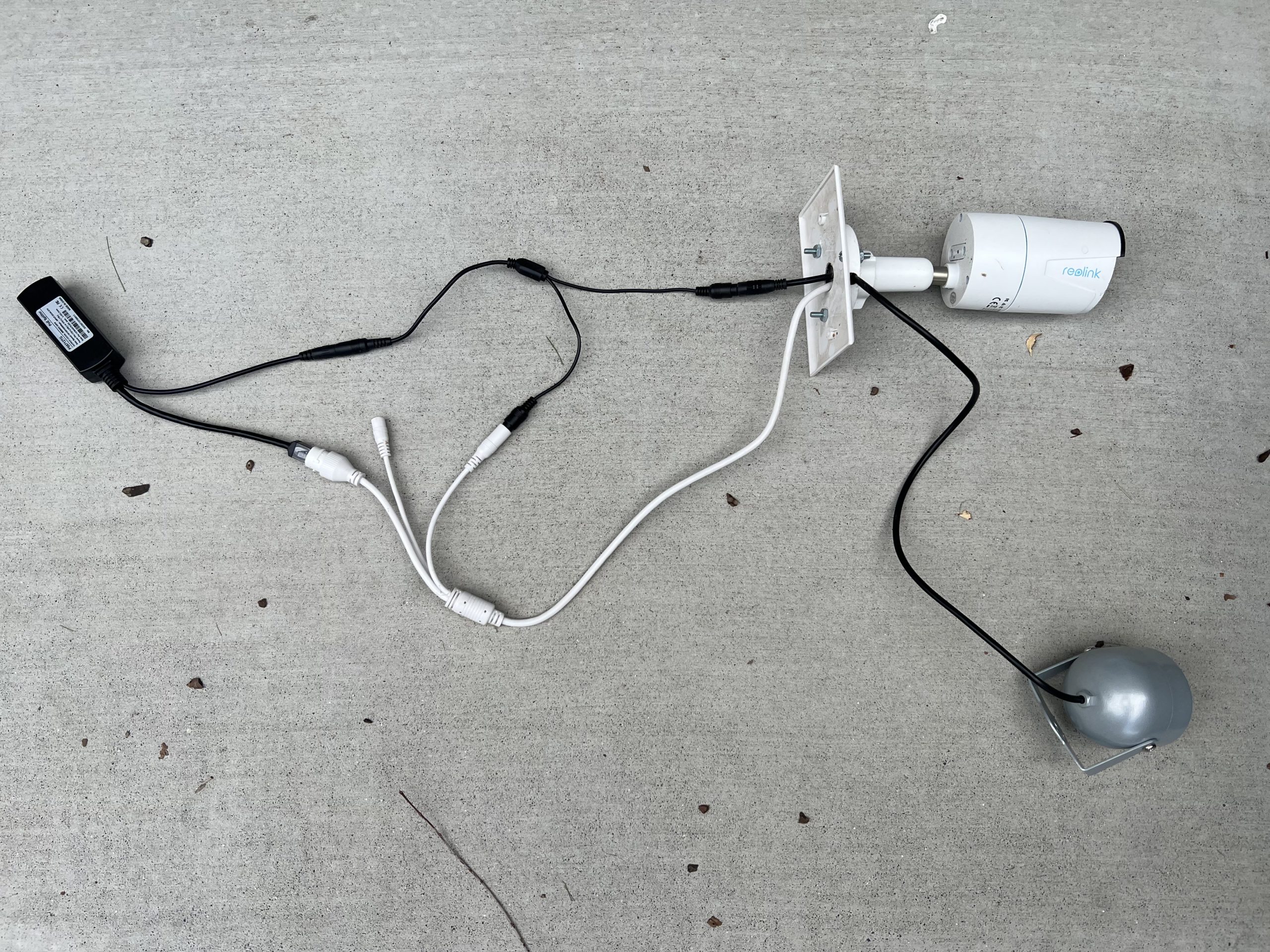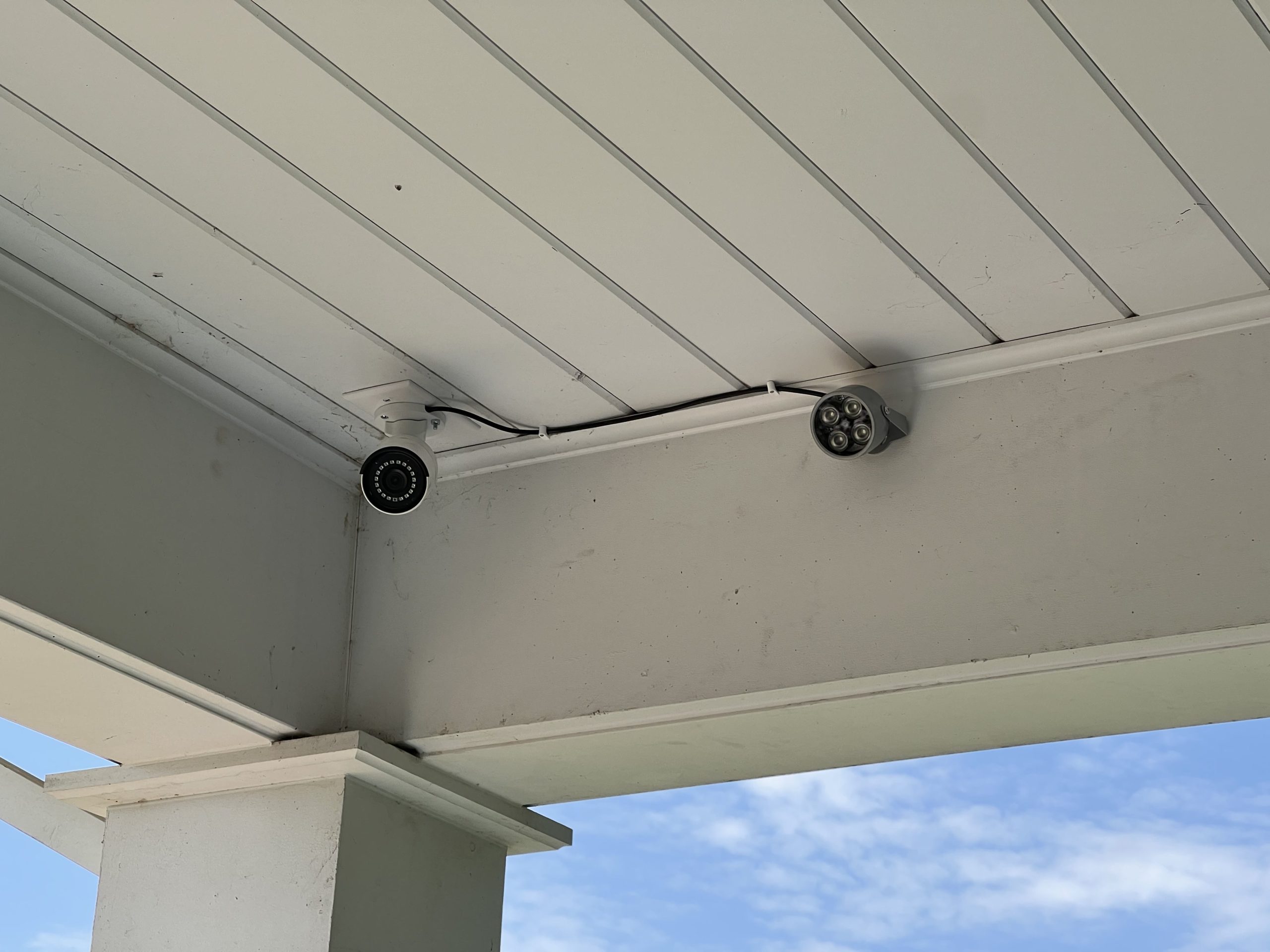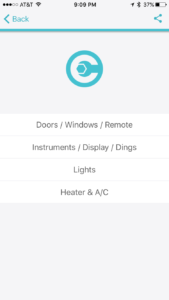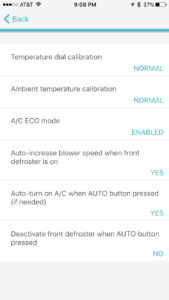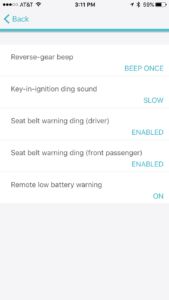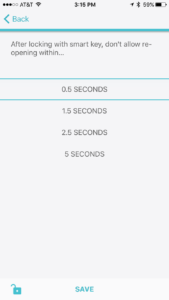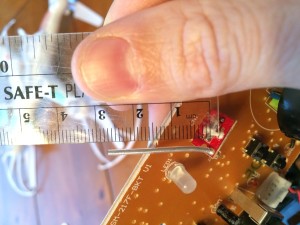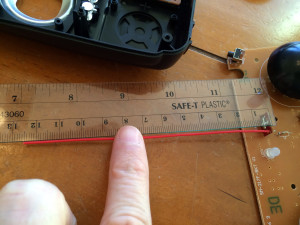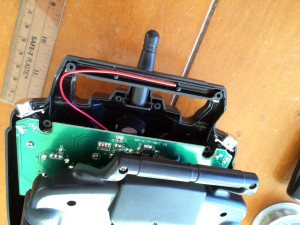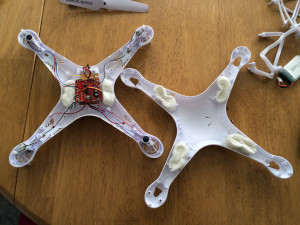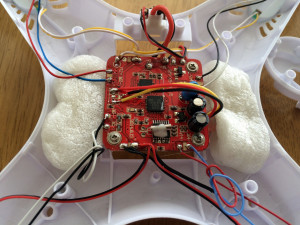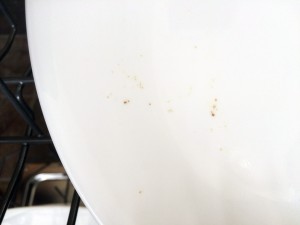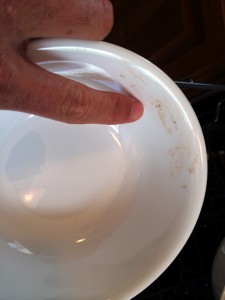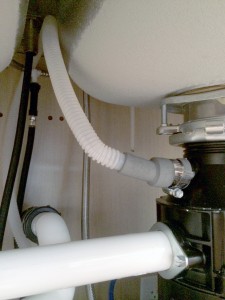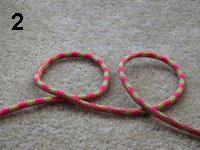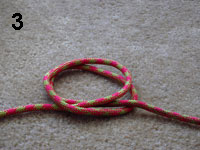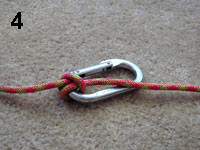For the last two years since we moved into our house in Salt Lake City, we have gotten swarms of small winged ants on the south side of our house for the week around Memorial Day in late May. Our next door neighbor said she gets ants swarming as well.
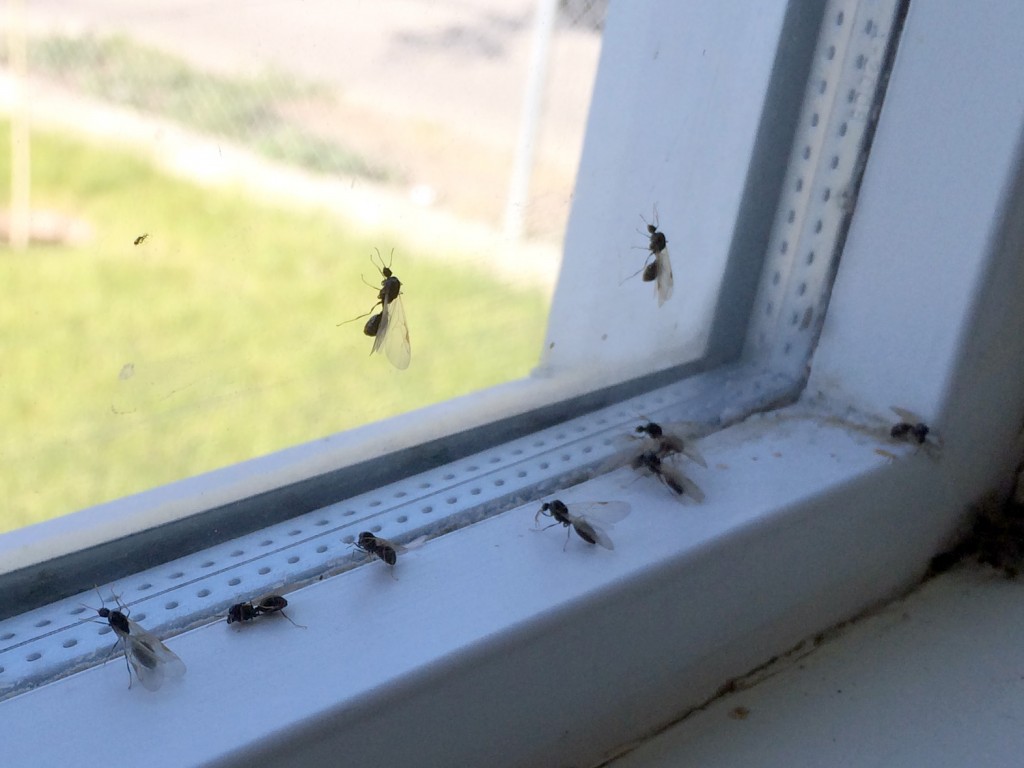
The winged ants in my front window
We mostly get the ants with wings coming in around the front door and under our baseboards in the morning. They climb up to the windows, buzz around and die, leaving their corpses strewn about the floor beneath the windows. After a few days their non-winged colony-mates begin to come in as well. In total the swarming lasts for about a week to 10 days.
Round 1: A mess
The first year we bought goopy spray which killed many of the ants, but it didn’t prevent more ants from coming from where ever the colony was. We also tried spreading cinnamon and baking soda, which had a mild deterrent effect and made more of a mess. We kept the vacuum out so we could vacuum up each day’s crop of ants.
Round 2: Less ants, less mess
In the spring of our second year I noticed an ant colony in our front flower bed, so I put out some ant bait traps. The Terro Liquid Ant Baits and the Spectracide Ant Shield Ant Bait ones seemed to work the best. The ants take the poison back to their colony and kill the whole colony. We still got ants coming in, but it seemed like less than the year before, so I must have killed only one out of several colonies.
Round 3: To be determined
Next year I will liberally spread these ant traps along the front of the house in spring to see if I can prevent it from happening again.
What’s going on?
For the weeks before and after, we noticed swarms of the same ants on sidewalks. Here’s a video of a swarm on our front sidewalk:
The ants must swarm each spring during their mating season. I took samples of the ants to my local extension office, and they identified them as ants, not termites, and that they are definitely not carpenter ants. That’s a relief to know that they aren’t chewing my house to bits. The extension office identified the ants as probably “little black ants.”
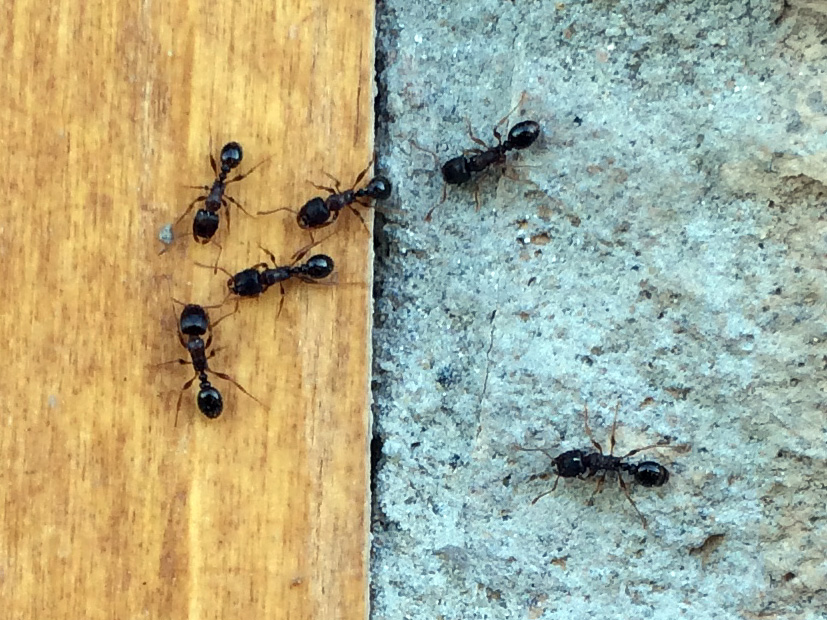
The non-winged ants on my doorpost
Have you had a similar ant invasion? What did you do to treat and prevent it?
